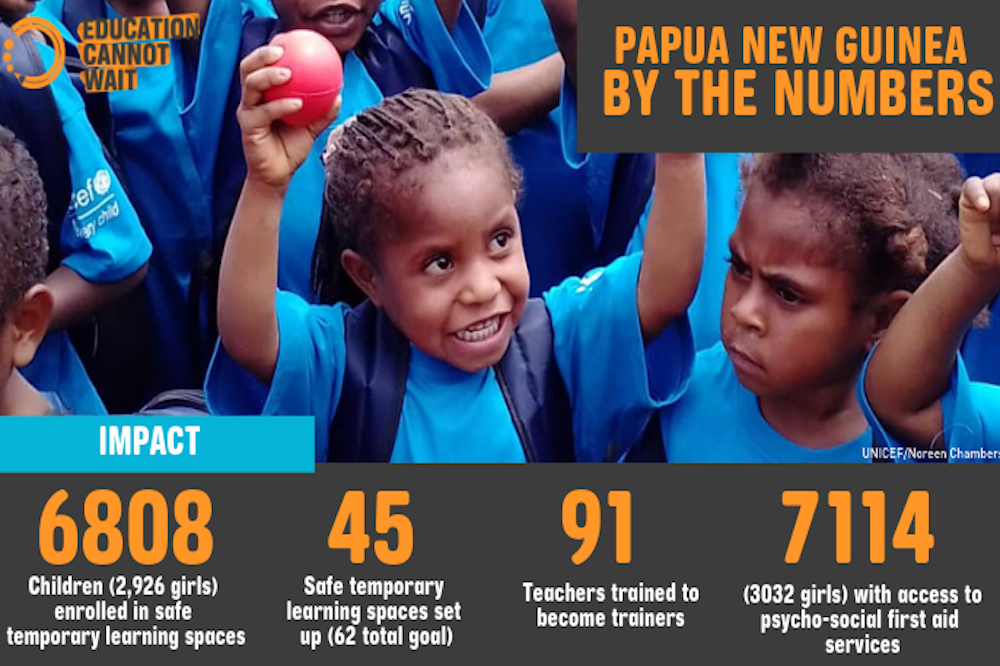
Five things you need to know this week about global education
Child marriage, Children in conflicts, Education in emergencies, Teachers and learning
Our news roundup includes the unfolding disaster caused by Cyclone Idai, horrific attacks on school buses and a royal honour for an inspirational blind teacher.
Homes and schools devastated by Cyclone Idai
A humanitarian disaster is unfolding in southern Africa after Cyclone Idai wiped out towns and villages, damaging or destroying schools, homes and medical centres.
Officials fear at least 1,000 people have died in Mozambique alone and the United Nations says 2.6 million people have been affected there and in Malawi and Zimbabwe.
Two children were killed at a school in Mozambique while Zimbabwe’s government said at least 30 students, two headmasters and a teacher from three schools were missing.
Heavy rains have triggered floods, inundating large areas of farmland and turning them into huge inland lakes.
It is in one of the worst climate-related disasters to hit the southern hemisphere and has left at least 500,000 people at risk of deadly diseases such as malaria and typhoid.
Two students at a secondary school were killed when a landslide sent a boulder crashing into their dormitory in Zimbabwe. Soldiers rescued nearly 200 pupils, teachers and staff who had been trapped at the school in Chimanimani.
Many schools in Mozambique are being used as shelters for people made homeless. The Salvation Army, Red Cross and other agencies are providing emergency food packages to families in the city of Beira, ensuring that children are able to continue attending school.
UNICEF says 260,000 children are affected in Mozambique alone.
“Many people are in desperate situations, several thousand are fighting for their lives at the moment sitting on rooftops, in trees and other elevated areas,” said the agency’s Christophe Boulierac. “This includes families and obviously many children.”
Help for children traumatised by earthquake

Teachers in Papua New Guinea are helping children to recover from the trauma of last year’s earthquake through temporary learning spaces.
Supported by Education Cannot Wait – the fund set up to deliver education in emergencies – the programme has enrolled almost 3,000 girls and 3,900 boys. More than 7,000 children also accessed psychosocial services.
91 teachers have been trained to help children cope with their trauma.
The earthquake damaged half the schools in the affected area. Primary school head Julie James Rodney saw her school destroyed and many of her students’ families struggle to find food and water.
“It was difficult to get the children back into a school routine because they were deeply traumatised,” she said. “These resources will help us to start teaching again – properly. The children will be so excited.”
Horrific attacks on school buses in Syria and Italy
Two children were killed in the Syrian city of Aleppo when their school bus was attacked by a sniper, according to reports. UNICEF said one five-year-old boy had died – but then Russian sources said a girl of eight and a boy of 12 were killed.
“It is mind-boggling that a school bus full of children comes under fire,” said Geert Cappelaere, UNICEF Regional Director in the Middle East and North Africa. “It is beyond any comprehension that those fighting continue to attack children, schools, teachers and even school buses.”
Meanwhile, Italy is in shock after the dramatic rescue of 51 children taken hostage by their school bus driver, who torched the vehicle in protest at Mediterranean migrant deaths.
The Italian driver of Senegalese origin hijacked the bus on Wednesday as it was taking the students aged 12 and 13 from a gym to school in Crema, east of Milan. Armed with two petrol canisters and a cigarette lighter, Ousseynou Sy threatened the youngsters, took their telephones and told the adults to tie them up with electric cable.
The 40-minute ordeal, during which the bus also slammed into a car, was brought to an end when police managed to smash windows open and get those onboard out just as the driver set fire to the vehicle.
Schools should be safe places where children can learn free from conflict, violence and fear. But Theirworld’s recent report Safe Schools: The Hidden Crisis said that between 2013 and 2017 there were more than 12,700 attacks on schools, harming more than 21,000 students and educators in at least 70 countries. Many children are also attacked or harassed during their journeys to school.
Royal honour for blind Thai teacher
A teacher who has been blind since birth has been honoured by the king of Thailand.
Damkerng Mungthanya, 26, gets up at 5am each day for his mother to walk him to a train station for the commute into downtown Bangkok, where a student accompanies him to the high school where he works.
Parents questioned his skills when he first joined the school two years ago, even though he had topped his graduation class at the prestigious Chulalongkorn University and placed third in an exam for thousands of teachers nationwide.
“I have to prove that my abilities speak louder than disability,” he said.
King Maha Vajiralongkorn conferred one of the country’s highest honours on Damkerng, recognising his contribution and hailing him as “a good role model for society and country”.
Refugee raps against child marriage
Hamidou Diabate is a refugee from Mali who now lives in Mauritania. Watch the video to find out why a tragedy in his family made him decide to use rap to spread the word about ending child marriage and keeping girls in school.
Turn up the volume! ?
Listen to this young African rapper who's using his rhymes to end child marriage pic.twitter.com/MIZxqBb8Xy
— UNHCR, the UN Refugee Agency (@Refugees) March 19, 2019
More news

